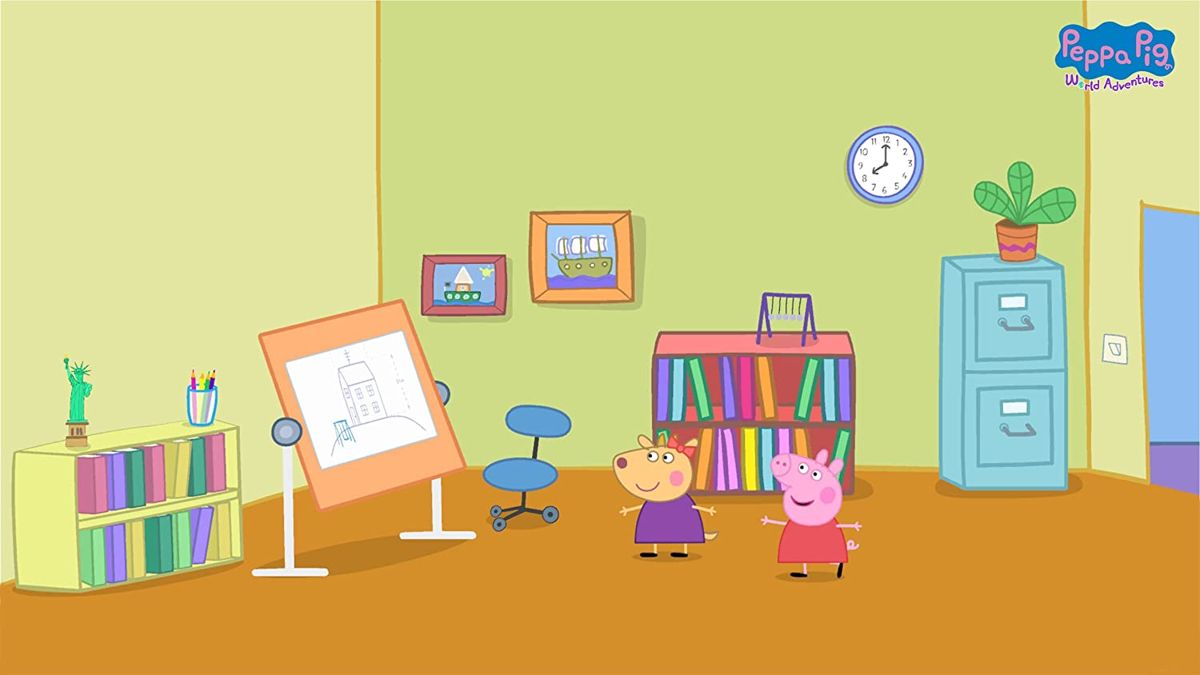How To Plan A Screen-Free Week For Kids

Table of Contents
Setting the Stage for a Successful Screen-Free Week
Successfully implementing a screen-free week for kids requires careful planning and preparation. It's not just about removing screens; it's about creating a positive and engaging alternative.
Family Meeting and Open Communication
Involving your children in the planning process is crucial for a smooth and successful screen-free week for kids. This fosters a sense of ownership and reduces resistance.
- Hold a family meeting: Discuss the goals of the screen-free week. Explain that it's not about punishment, but about exploring new activities and strengthening family connections.
- Highlight the benefits: Explain how reducing screen time can lead to improved sleep, increased physical activity, enhanced creativity, and better family interaction. Use age-appropriate language to explain these advantages.
- Solicit input: Ask your kids what activities they'd like to do during the week. This ensures they're excited about the planned activities, rather than dreading the absence of screens.
- Establish clear rules and expectations: Discuss what constitutes "screen time" (TV, tablets, phones, video games) and what the consequences are for breaking the rules. Transparency and clear expectations are key to minimizing conflicts.
Preparing the Environment
Minimizing screen temptations is vital for a successful screen-free experience. Take proactive steps to remove screens from the equation.
- Put away all devices: This includes tablets, smartphones, video game consoles, and TVs. Consider storing them in a closet or another inaccessible location.
- Utilize parental controls: If complete removal isn't feasible, use password protection or parental control apps to restrict access to devices during the week.
- Stock up on alternatives: Gather books, board games, arts and crafts supplies, outdoor toys, and other engaging offline activities beforehand. Having plenty of alternatives readily available will make the transition smoother.
Planning Engaging Offline Activities for Kids
The key to a successful screen-free week for kids is filling the time with fun and enriching activities. Here are some ideas categorized for easier planning:
Creative and Imaginative Play
Unleash your children's creativity with engaging activities that spark their imagination.
- Arts and crafts: Engage in painting, drawing, sculpting, making homemade playdough, or creating collages. These activities promote self-expression and fine motor skill development.
- Building adventures: Encourage the construction of forts, obstacle courses, or miniature worlds using blankets, pillows, cardboard boxes, and other household items.
- Role-playing and dress-up: Encourage imaginative play with costumes, props, and storytelling. This fosters creativity, social skills, and emotional development.
- Storytelling and writing: Engage in collaborative storytelling, write stories together, or have your children write and illustrate their own books.
Outdoor Adventures
Encourage physical activity and a connection with nature.
- Park visits: Spend time at playgrounds, parks, or other outdoor spaces.
- Nature walks or hikes: Explore local trails, discover nature's beauty, and learn about plants and animals.
- Active outdoor play: Engage in biking, rollerblading, skateboarding, or other physical activities.
- Outdoor games: Play classic outdoor games like tag, hide-and-seek, frisbee, or kickball.
Educational and Skill-Building Activities
Use the screen-free time to learn new skills and expand knowledge.
- Family reading time: Read books together, fostering a love of reading and bonding as a family.
- Board games and puzzles: Engage in strategic thinking and problem-solving with board games, puzzles, or card games.
- Skill-building activities: Teach your kids a new skill, such as cooking, knitting, basic coding (unplugged activities), or playing a musical instrument.
- Educational outings: Visit museums, libraries, or historical sites.
Handling Challenges and Setting Realistic Expectations
A screen-free week for kids might present challenges. Prepare for them and address them proactively.
Addressing Screen Withdrawal
Expect some initial resistance or boredom. This is normal.
- Anticipate grumbling: Acknowledge that it's okay to feel frustrated at first. Reassure your children that it's temporary.
- Have backup plans: Always have alternative activities ready to prevent boredom from leading to screen time requests.
- Patience is key: Be patient and supportive throughout the week. Positive reinforcement will go a long way.
- Reward positive behavior: Acknowledge and reward positive participation in planned activities.
Incorporating Screen Time Gradually After the Week
Avoid abruptly reintroducing screens.
- Gradual reintroduction: Slowly increase screen time after the week ends, starting with short periods and gradually increasing it over several days.
- Set new guidelines: Establish clear limits for daily screen time after the week, ensuring it remains balanced and healthy.
- Maintain healthy habits: Continue to monitor screen time and encourage balanced activities to ensure long-term healthy technology habits.
Conclusion
Planning a screen-free week for kids doesn't have to be daunting. By following these steps, you can create a fun, engaging, and rewarding experience for your whole family. Remember to involve your children in the process, prepare your environment, and plan a variety of activities to keep them entertained and engaged. A successful screen-free week can lead to a more balanced and healthy relationship with technology for your kids, fostering creativity, family bonding, and overall well-being. So, take the plunge and plan your family's screen-free week for kids today! Start your journey towards a more balanced life with a successful screen-free week!

Featured Posts
-
 Southport Racial Hatred Case Councillors Wife Sentenced
May 22, 2025
Southport Racial Hatred Case Councillors Wife Sentenced
May 22, 2025 -
 Peppa Pig Online Streaming Finding Free And Paid Episodes
May 22, 2025
Peppa Pig Online Streaming Finding Free And Paid Episodes
May 22, 2025 -
 Pivdenniy Mist Detalniy Analiz Remontnikh Robit Ta Vitrat
May 22, 2025
Pivdenniy Mist Detalniy Analiz Remontnikh Robit Ta Vitrat
May 22, 2025 -
 Huizenprijzen Nederland Klopt De Abn Amro Analyse Volgens Geen Stijl
May 22, 2025
Huizenprijzen Nederland Klopt De Abn Amro Analyse Volgens Geen Stijl
May 22, 2025 -
 Its A Girl Peppa Pig Family Grows
May 22, 2025
Its A Girl Peppa Pig Family Grows
May 22, 2025
Latest Posts
-
 Couple Arrested Following Antiques Roadshow Appearance National Treasure Involved
May 22, 2025
Couple Arrested Following Antiques Roadshow Appearance National Treasure Involved
May 22, 2025 -
 Antiques Roadshow Discovery Results In Couples Arrest For Trafficking
May 22, 2025
Antiques Roadshow Discovery Results In Couples Arrest For Trafficking
May 22, 2025 -
 Current Status Of The Trans Australia Run World Record Attempt
May 22, 2025
Current Status Of The Trans Australia Run World Record Attempt
May 22, 2025 -
 National Treasure Trafficking Antiques Roadshow Leads To Arrest
May 22, 2025
National Treasure Trafficking Antiques Roadshow Leads To Arrest
May 22, 2025 -
 Updated Trans Australia Run World Record Attempt
May 22, 2025
Updated Trans Australia Run World Record Attempt
May 22, 2025
